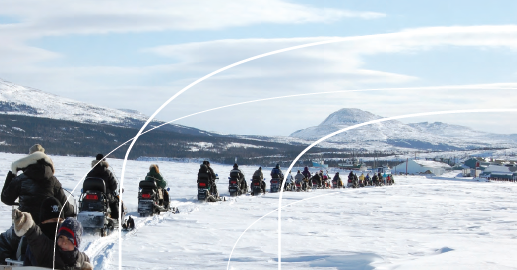Research

Governance in the Arctic: Political Systems and Geopolitics by Greg Poelzer and Gary N. Wilson
- Posted On: February 17th, 2015
The goals of the second volume of the AHDR – Arctic Human Development Report: Regional Processes and Global Linkages – are to provide an update to the first AHDR (2004) in terms of an assessment of the state of Arctic human development; to highlight the major trends and changes unfolding related to the various issues and thematic areas of human development in the Arctic over the past decade; and, based on this assessment, to identify policy relevant conclusions and key gaps in knowledge, new and emerging Arctic success stories.
This chapter, written by Gary N. Wilson and myself, focuses on governance and examines the main institutional features that influence Arctic governance at the local, regional, national and international levels, with a particular focus on developments since the first Arctic Human Development Report (AHDR, 2004).
Click here to access the full report: http://norden.diva-portal.org/smash/get/diva2:788965/FULLTEXT03.pdf

Greg M. Poelzer
Executive Chair, ICNGD and Fulbright Arctic Initiative Scholar
Dr. Greg Poelzer is a Professor in the School of Environment and Sustainability (SENS) at the University of Saskatchewan. He the Co-Lead of the Fulbright Arctic Initiative III program. He is the Co-Director of a multi-million dollar SSHRC Partnership Grant (2019-2026), Community Appropriate Sustainable Energy Security (CASES), which spans 17 Indigenous and Northern communities across Canada, Alaska, Norway, and Sweden. He also is the Lead of the Renewable Energy in Remote and Indigenous Communities Flagship Initiative at the University of Saskatchewan and Lead of the UArctic Thematic Network on Renewable Energy.
Read More



